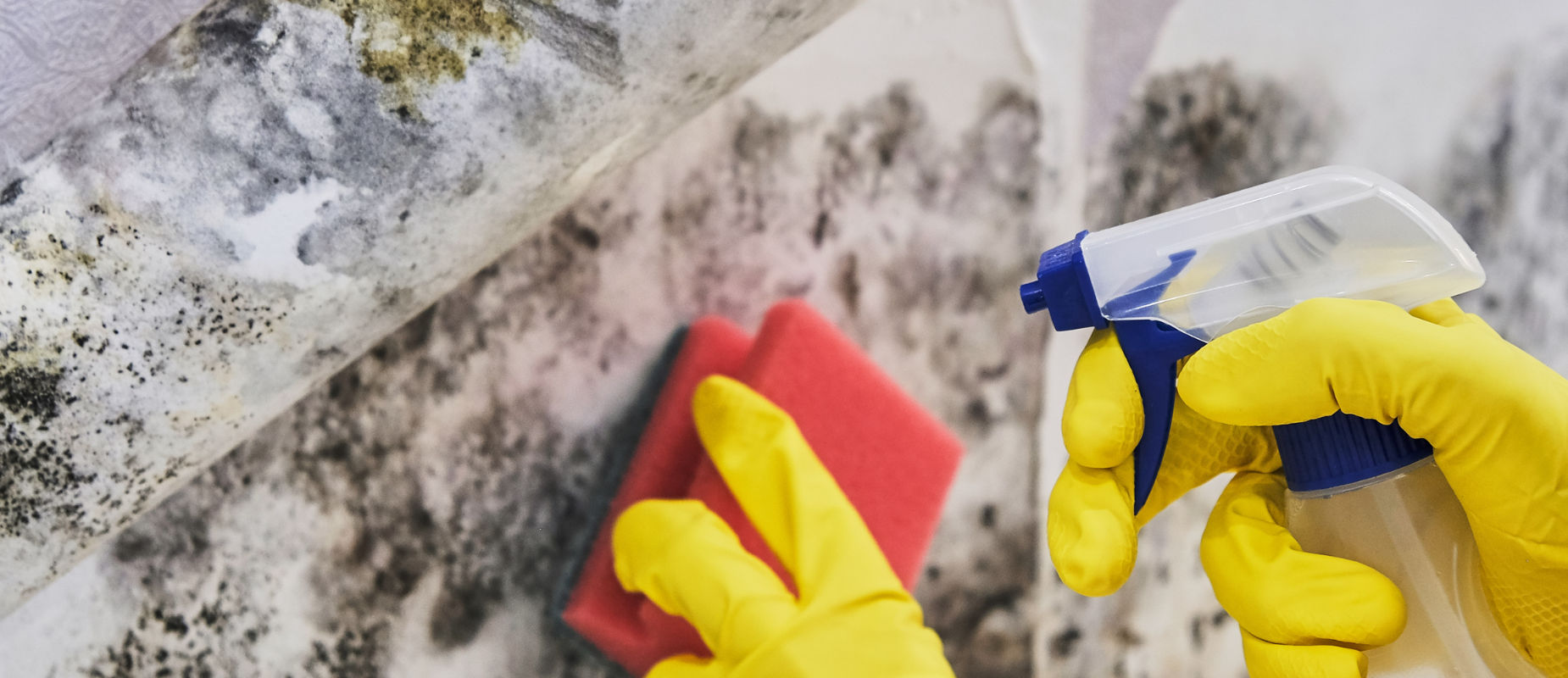
Understanding Disaster Restoration Services In New Hampshire
If you’re a homeowner in New Hampshire trying to sell a house with mold in it, you should be aware of the hazards, disclosure obligations, and tactics associated with the process. One important factor to consider is the state’s disaster restoration services.
These services are essential for addressing mold or water damage in your home. It is critical to conduct research and identify a reputable company that specializes in mold remediation and restoration.
They can assess the extent of mold infestation and develop a plan for removal. Working with a reputable restoration company ensures that your home is properly restored and ready for sale with no hidden issues.
TABLE OF CONTENTS
- Understanding Disaster Restoration Services In New Hampshire
- The Hidden Dangers Of Mold In Homes: A Guide For Homeowners
- Critical Problems For Homesellers: How Mold Can Affect The Sale Of Your Home
- Essential Steps For Homesellers: Handling A Mold Infestation Before Selling
- Hiring A Professional Mold Remediation Contractor: What To Look For
- Exploring Real Estate Regulations In New Hampshire
- Navigating Real Estate Transactions With The Help Of A Real Estate Attorney
- Published By Experts: Trusted Information On Dealing With Mold In Homes
- Why Do Buyers Worry About Mold? Understanding Buyer Concerns And Expectations
- Can A Mold Infestation Decrease The Value Of Your Home? Debunking Common Myths
- Do You Have To Disclose Mold When Selling A House In New Hampshire?
- Can A House Be Sold If It Has Mold?
- Is Mold In A House A Deal Breaker?
The Hidden Dangers Of Mold In Homes: A Guide For Homeowners

As a New Hampshire homeowner, you should be aware of the potential risks and obligations associated with selling a mold-infested home. Mold can damage your home and pose serious health risks for you and your family.
Indeed, the Environmental Protection Agency warns that mold exposure can cause respiratory issues, allergies, and other health problems. This makes it critical for homeowners to understand their disclosure requirements when selling a mold-infested home.
Failure to disclose this information may lead to legal consequences and financial losses. As a result, homeowners must educate themselves on the proper strategies and precautions to take when dealing with mold in their homes.
Critical Problems For Homesellers: How Mold Can Affect The Sale Of Your Home
Selling a mold-infested home in New Hampshire can be a difficult task for any homeowner. In addition to addressing health risks and property damage, it’s important to fulfill disclosure obligations.
Failure to disclose the presence of mold in your home may result in legal consequences and jeopardize the sale of your home. Potential buyers may be hesitant to purchase a mold-infested home, resulting in a lower sale price and longer selling time.
To successfully sell your home, you must first understand the risks associated with mold and take the necessary precautions when dealing with it.
Essential Steps For Homesellers: Handling A Mold Infestation Before Selling

As a homeowner in New Hampshire, you must understand the disclosure requirements and risks associated with selling a mold-infested home. Before listing your property for sale, address any mold issues.
This includes hiring a professional mold inspector to assess the scope of the infestation and identify any potential health risks. Once you have a clear understanding of the situation, you can develop effective remediation strategies.
It is also critical to keep track of all mold-related actions, as this information must be disclosed to prospective buyers. Taking these necessary steps will not only help you meet your legal obligations but will also increase your chances of successfully selling your home.
Hiring A Professional Mold Remediation Contractor: What To Look For
Hiring a professional mold remediation contractor is crucial for selling a house with mold in New Hampshire. But with so many options, it can be difficult to know what to look for.
To begin, ensure that the contractor is properly licensed and certified in mold remediation. This ensures that they have received the necessary training and expertise to perform the job effectively and safely.
Consider their experience with similar cases and ask for references from previous clients. Inquire about their mold-removal equipment and methods, as well as any warranties or guarantees they provide.
Finally, before you make a decision, get multiple quotes and compare them. By carefully selecting a reputable and qualified mold remediation contractor, you can ensure that your home is properly prepared for sale.
Exploring Real Estate Regulations In New Hampshire

When it comes to selling a mold-infested home in New Hampshire, there are certain regulations and obligations that must be met. New Hampshire real estate law requires sellers to disclose any known mold issues in their property before closing the sale.
Failure to do so may result in legal consequences for the seller. Buyers can request a mold inspection during due diligence, which may impact negotiations.
As a result, it is critical that both sellers and buyers understand their rights and responsibilities under these regulations in order to avoid potential risks and make informed decisions during the sales process. Proper documentation and professional remediation are also effective strategies for navigating these regulations.
Navigating Real Estate Transactions With The Help Of A Real Estate Attorney

When selling a mold-infested house in New Hampshire, there are numerous considerations. Understanding your disclosure obligations as a seller is crucial.
To avoid legal ramifications in the future, potential buyers should be informed of any known mold issues. Selling a mold-infested property involves risks such as lawsuits and decreased property value.
As a result, it is critical to have a solid strategy in place to navigate these risks and ensure a successful transaction. A real estate attorney’s expertise can be extremely valuable in this situation.
A knowledgeable real estate attorney can help you navigate the complex legal requirements and protect your interests during the sale process. With their help, you can confidently navigate the sale of your mold-infested home, ensuring all necessary disclosures and precautions are taken.
Published By Experts: Trusted Information On Dealing With Mold In Homes
This ultimate guide, written by industry experts, provides reliable information on dealing with mold in your home. This comprehensive guide covers everything from understanding disclosure laws to implementing effective remediation and prevention strategies when selling a mold-infested home in New Hampshire.
With accurate and up-to-date information, homeowners can confidently navigate the process, ensuring a successful sale while protecting themselves from potential legal issues.
Why Do Buyers Worry About Mold? Understanding Buyer Concerns And Expectations

When it comes to buying a home, one of the most common concerns is the presence of mold. Mold can pose a serious health risk and cause significant property damage.
As a result, buyers are understandably concerned about the potential health risks and expensive repairs associated with mold infestations. They also expect sellers to fully disclose any known mold issues in the home.
Buyers want to know that they are making a safe and sound investment with no hidden surprises. As a result, understanding buyer concerns and expectations regarding mold is critical for successfully selling a mold-infested New Hampshire house.
Can A Mold Infestation Decrease The Value Of Your Home? Debunking Common Myths
Discovering a mold infestation in your New Hampshire home can be a nightmare. It is not only a health risk, but it can also raise questions about the value of your property.
Many homeowners believe that having mold in their homes automatically reduces the value of their property. Unfortunately, this is not always the case.
The effects of a mold infestation on your home’s value might vary depending on several variables. Furthermore, there are common misconceptions about mold and its impact on property value that must be dispelled.
If you are aware of these variables and debunk these fallacies, you can confidently sell a mold-infested house in New Hampshire.
Do You Have To Disclose Mold When Selling A House In New Hampshire?
In New Hampshire, there are stringent disclosure requirements that must be fulfilled when selling a home. Whether or not sellers are required to disclose mold on their property is one of the most significant questions they frequently ask.
Yes, to put it briefly. State regulations mandate that sellers reveal any known mold infestations in their house, whether or not they have been remedied.
If this isn’t done, there may be legal repercussions and the possibility of a buyer lawsuit. However, sellers can manage these risks and successfully sell a mold-infested house in New Hampshire with careful planning and the right paperwork.
Can A House Be Sold If It Has Mold?

New Hampshire homeowners may struggle to sell a moldy home. There are disclosure requirements and risks.
Mold-infected homes can be sold with the right approach. Sellers must know their legal obligations when disclosing mold issues to buyers.
If you don’t, you risk legal trouble and reputation damage. Be aware of the risks of selling a mold-infested house, such as lower market value and trouble finding buyers.
Effective strategies like addressing the mold issue before listing the house and being transparent with potential buyers can greatly increase your chances of selling. This ultimate guide will help you sell a mold-infested New Hampshire house with confidence.
Is Mold In A House A Deal Breaker?
When it comes to selling a mold-infested house in New Hampshire, one of the most pressing concerns for both buyers and sellers is whether or not this issue will jeopardize the transaction. Mold can be a major red flag for potential buyers and have a significant impact on property value.
As a seller, you must understand your disclosure obligations and the risks associated with selling a mold-infested home. However, with the right strategies and precautions in place, you can successfully navigate this situation and sell your home without suffering a significant loss.
In this ultimate guide, we’ll look at the disclosure requirements, risks, and strategies for selling a mold-infested home in New Hampshire.
This information applies to New Hampshire and its cities, including Amherst, Bedford, and Milford. For assistance or questions, please call us at (603) 459-5214 . You can also visit our website at Arrowhead Home Buyer for more details.
More Resources For Sellers In New Hampshire
| MOLD REMOVAL | MOLD GROWTH | MOLD ASSESSMENT | ATTORNEYS | LAWYER | GRANITE STATE |
| REALTORS | REAL ESTATE AGENCIES | REAL ESTATE AGENT | HUMAN HEALTH | ESTATE AGENCIES | ESTATE AGENT |
| POSTAL CODE | ZIP CODE | WOOD | SPORES | LITIGATION | INSURANCE |
| INSURANCE CLAIMS | HOME INSPECTORS | HOME INSPECTIONS | ODOR | UNPLEASANT ODORS | MOLD SPORES |
| HVAC SYSTEMS | FLOODING | VENTILATION | SHOWER | ROOF | |
| PLUMBING | HEPA | ILL HEALTH | INSULATION | BATHROOMS |


